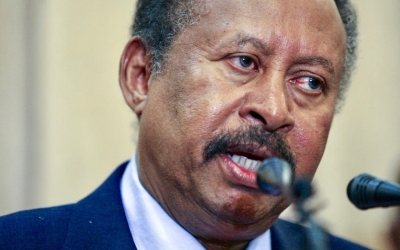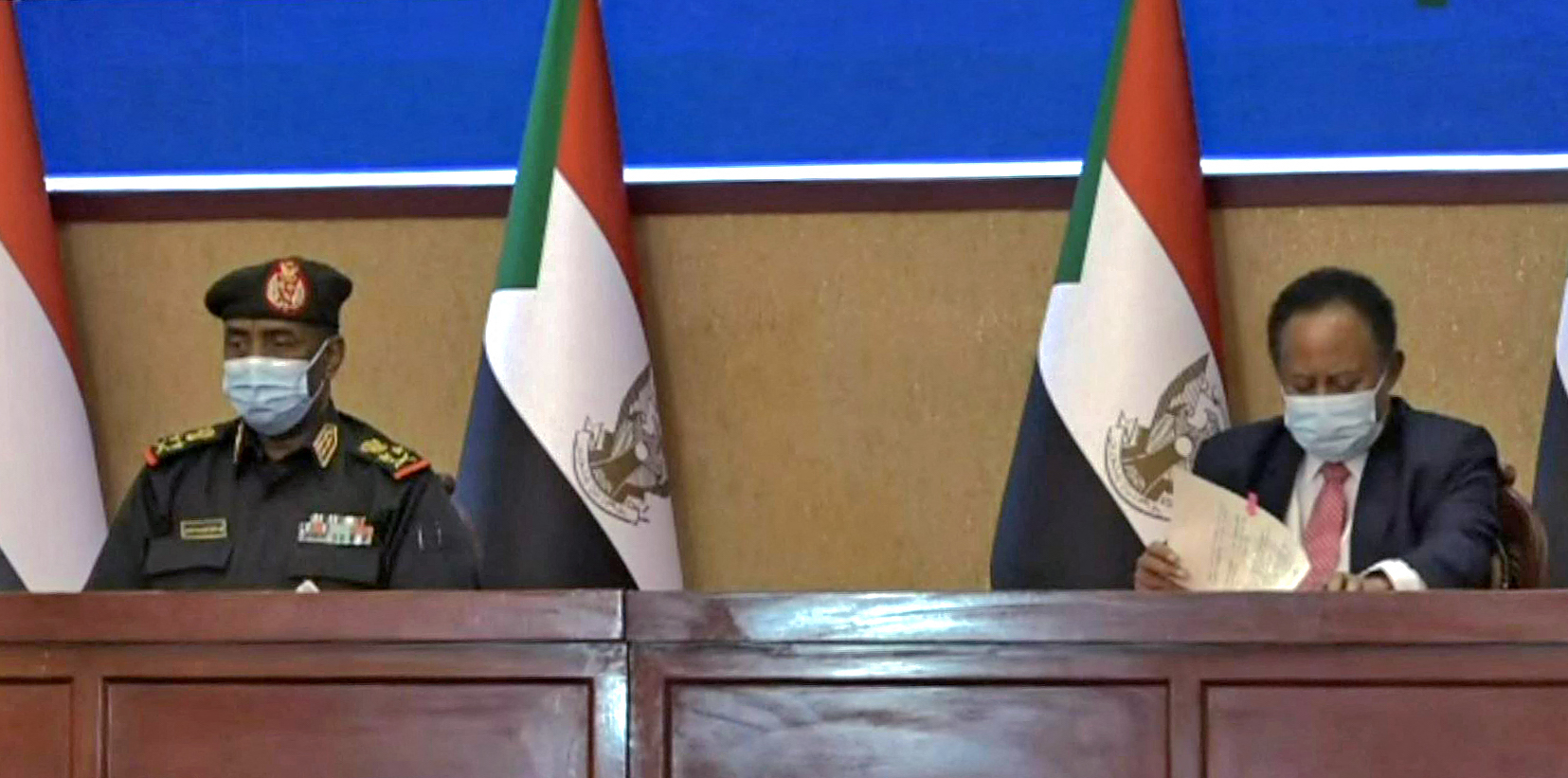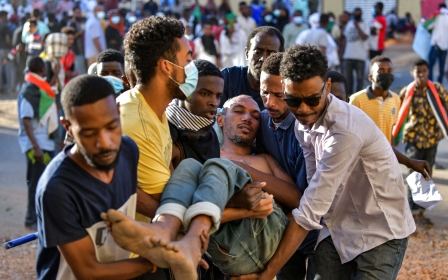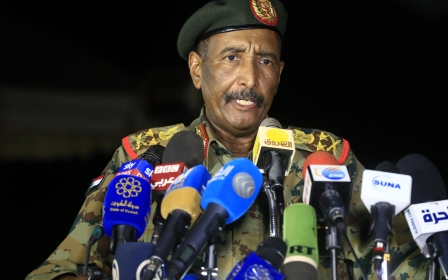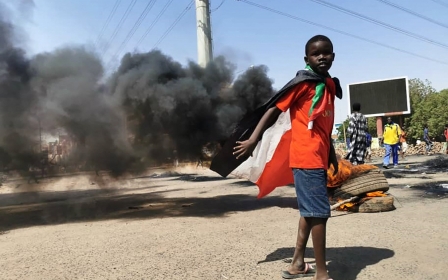Sudan: Why military will struggle to replace Hamdok
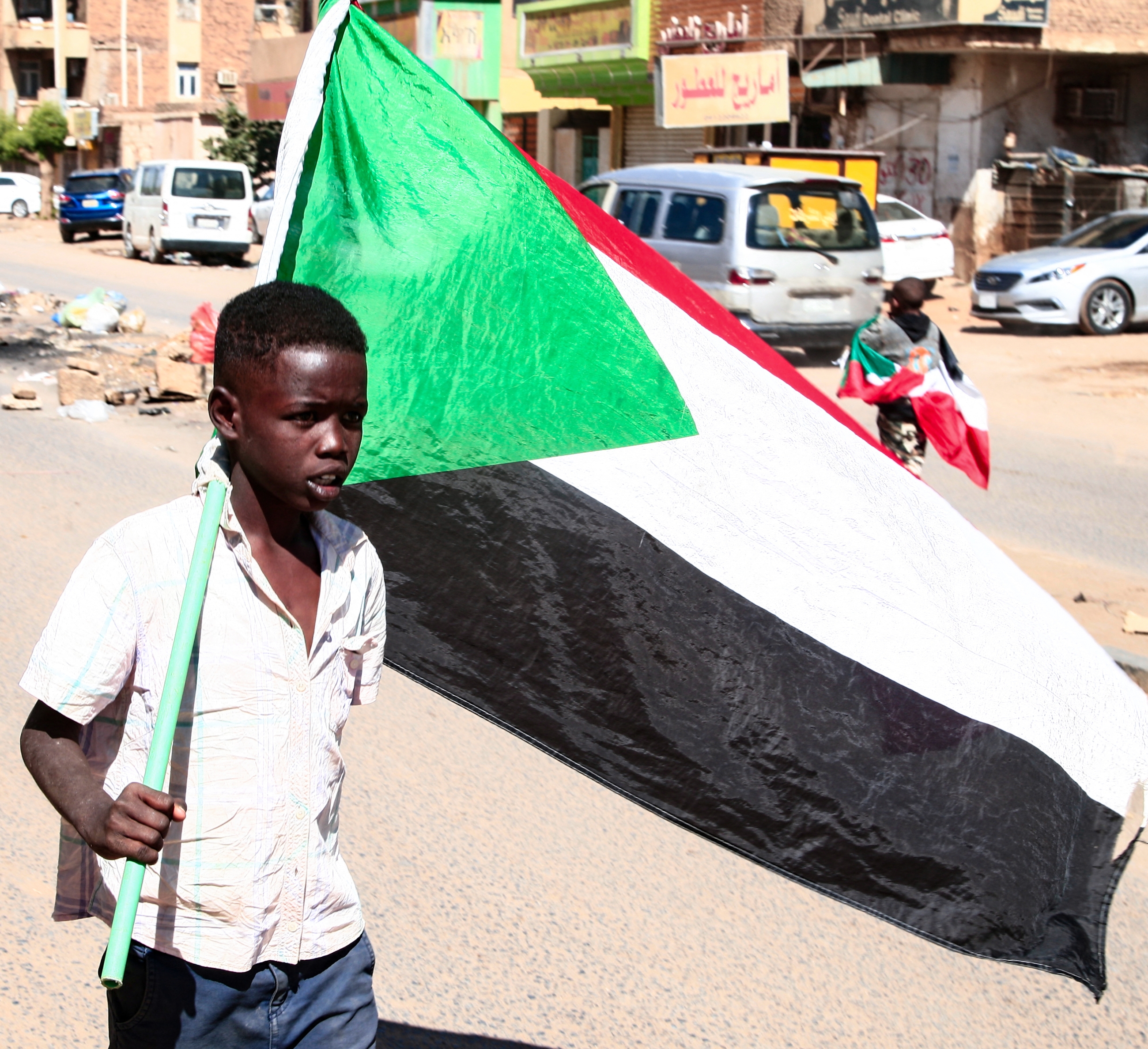
On Sunday evening, following another wave of mass protests and killings by the security forces, Sudan’s transitional prime minister, Abdalla Hamdok, resigned, announcing that the country was now "at a dangerous turning point that threatens its whole survival".
Sources close to Hamdok reported that he was frustrated by the military-led Sovereignty Council’s decision to return powers of arrest to Sudan’s General Intelligence Service (GIS), as well as the refusal to re-appoint ambassadors dismissed following Burhan’s coup against his civilian allies on 25 October.
New MEE newsletter: Jerusalem Dispatch
Sign up to get the latest insights and analysis on Israel-Palestine, alongside Turkey Unpacked and other MEE newsletters
In practice, however, Hamdok had already lost much of his legitimacy in the Sudanese street and among the civilian political forces after he signed a political agreement with Abdel Fattah al-Burhan, the commander of the Sudanese Armed Forces (SAF), on 21 November.
The agreement conceded to the military its principal demand that he form a "technocratic" cabinet to replace the party-led one established in early 2021. Following the agreement, the street was divided, while part of public opinion instantly turned on Hamdok, initially denouncing him as "a traitor" to Sudan’s revolution. However, the more dominant view in the street believed Hamdok must have had few options in hand and that he still represents civilian rule.
Hamdok's resignation means that Sudan’s transitions now appear to be following a very different course to the two historic transitions that followed Sudan’s first two civilian uprisings, the October Revolution of 1964 and the April Intifada of 1985, which acted as the historic precursors of today’s events.
What Hamdok shares with the interim prime ministers during each of Sudan’s previous two transitions is that he ended up at odds with the radical urban street. In both 1964 and 1985, prime ministers Sirr al-Khatim al-Khalifa and Jazouli Dafa'allah worked against the urban left to ensure a transition to elected Umma Party governments that had the backing of the military.
The difference today, of course, is that while both those prime ministers lasted till the end of the transitional period, Hamdok has not, which means that the political situation in Sudan is now extremely fluid.
Progressive credentials
Hamdok was never predestined to play out the same role as his predecessors. Indeed, his progressive credentials were far greater than those of Jazouli Dafa'allah, who had historic ties to Sudan’s Islamists, or Sirr al-Khatim al-Khalifa, who negotiated with the Umma’s Sadiq al-Mahdi in 1965 to dissolve a transitional government dominated by the political left.
Following more killings by the security services, Hamdok realised he could no longer associate himself with the military’s increasingly counter-revolutionary turn and resigned
Hamdok was himself a former member of the Sudan Communist Party, and his senior advisors were also men with historic leftist credentials. He was initially warmly received by many of the Resistance Committees, the grassroots movement spearheading the street Hirak (protests). The most progressive of Sudan’s rebel groups, notably Abdel Wahid Nur’s Sudan Liberation Movement and Abdel Aziz Hilu’s faction of the Sudan People’s Liberation Army-North, also had a positive view of Hamdok.
Following more killings by the security services, Hamdok realised he could no longer associate himself with the military’s increasingly counter-revolutionary turn and resigned. Hamdok had also publicly attacked the role of the army in the economy, maintaining that the role of military companies should be limited to the defence sector.
According to sources within the security services, before 25 October, the GIS drew up an analysis of potential post-coup scenarios, suggesting that Hamdok was a hesitant and malleable figure who could be used as a figurehead to mask a military takeover. If this is true, then Hamdok initially failed to live up to the security services’ expectations, refusing at gunpoint to read out a statement endorsing the coup.
Nevertheless, the security services continued to work hard to keep Hamdok isolated, putting him under house arrest and only allowing him access to pro-military figures in the Forces of Freedom and Change (FFC), as well as international and regional diplomats who pushed him in the direction of a solution that would ensure Sudan’s "stability".
The mediator
Fadlallah Burma Nasir, the acting leader of the National Umma Party, was one of the individuals who was given substantial access to Hamdok. There were many reasons the military looked favourably upon Nasir, a ghost of Sudan’s transitions past. As an army officer himself in 1985 he had joined Siwar al-Dahab’s Transitional Military Council, and it was he who allegedly attempted to keep leftists imprisoned by the former regime in Kober jail once Sudan’s former dictator Jafa’ar Nimeiri fell.
After the 25 October coup, Nasir positioned himself as a mediator between Hamdok and the military. He was one of the principal architects of the 21 November position deal, and was the most vocal of all Sudan’s politicians in defending it in the media.
According to the pro-opposition newsite al-Rakoba, however, Nasir tricked Hamdok into believing that he had been authorised by the central council of the Forces of Freedom and Change to negotiate between him and the army. In reality, the FFC leadership, recognising the widespread anger on the street, had been refusing outright to negotiate with the military.
The FFC rejected the political agreement as soon as Nasir announced it to the media, as did the Sudan Professional Association and the Resistance Committees in Khartoum. The various institutions representing the "international community", however, much to the mortification of the protestors, had already issued statements welcoming the deal on the grounds that it had secured Hamdok’s release. Following the agreement, Nasir suffered a major backlash from within his own party, as senior figures challenged his actions.
While Hamdok managed to secure the return of a number of the officials dismissed from ministries following the 25 October coup, for every individual he brought back, the military would re-instate another securocrat from the days of al-Bashir’s regime. Even as the 21 November deal formally stated that every party except al-Bashir’s National Congress Party would be part of the transition, Burhan returned the old NCP-era governor of South Kordofan to head the General Intelligence Service.
On 2 January, following more killings by the security services, Hamdok realised he could no longer associate himself with the military’s increasingly counter-revolutionary turn and resigned.
Hamdok replacement
Reports have emerged that Ibrahim Bedawi, the finance minister, who left Hamdok’s first transitional cabinet over policy differences, is being considered by the military as a replacement for him. However, any politician who replaces Hamdok is unlikely to maintain serious credibility if they enter the governing arrangement as it stands following the 25 October coup and 21 November political deal.
What the radical urban protestors want in effect, is a transition to a civilian-led transitional government that will break the stranglehold of the military over the economy and political life
Indeed, a major problem for any technocrat who attempts to replace Hamdok will be the fact that there is now widespread street opposition not just to the 21 November deal, but to the original August 2019 deal that inaugurated the civil-military partnership and led to Abdalla Hamdok’s premiership.
The Sudan Professional Association welcomed Hamdok’s resignation, which it treats as confirmation that any hopes of a civil-military partnership have now faded. However, the secretary general of the Umma Party, al-Wathiq Bireir, lamented the decision, maintaining it would lead to a return to complete army dominance.
Both the National Umma Party leadership and the radical street protestors maintain they want a return to civilian rule, although they have different understandings of what this means. The National Umma Party wants a quick return to parliamentary elections.
While the party is unlikely to perform as strongly in elections today as it did during its peak in the 1960s and the 1980s, it still has a better chance at mobilising its remaining support base through electoral campaigns than revolutionary protest politics, and maintains that the political forces blocking an immediate transition to elections are those who have tended historically to perform poorly in them, such as the Ba’athists and the Communists.
What the radical urban protestors want in effect, is a transition to a civilian-led transitional government that will break the stranglehold of the military and other security services over the economy and political life and thus prevent pro-military groups dominating when elections do come around.
The transitional path towards Umma-led parliamentary rule tacitly backed by the military seems far less clear now than it did in 1964 and 1985. While the National Umma Party is still a serious political contender, its historic power base from the period of the 1986-1989 democracy has been eroded by rebel groups in Western Sudan and the youthful protest movement in the urban centre.
For the Resistance Committees, which emerged as a nationalistic rather than a partisan movement, this is still potentially a moment of opportunity. At the same time, the transitional government has now lurched far further in the direction of counter-revolution than it did in either 1964 or 1985, by granting powers of arrest to the interim security services similar to those possessed by the National Intelligence and Security Services (NISS) of the old regime.
It is now clear that 2019-2022 is no re-run of 1964-1965 or 1985-1986, and Sudan’s immediate political future remains extremely uncertain.
The views expressed in this article belong to the author and do not necessarily reflect the editorial policy of Middle East Eye.
Middle East Eye delivers independent and unrivalled coverage and analysis of the Middle East, North Africa and beyond. To learn more about republishing this content and the associated fees, please fill out this form. More about MEE can be found here.



